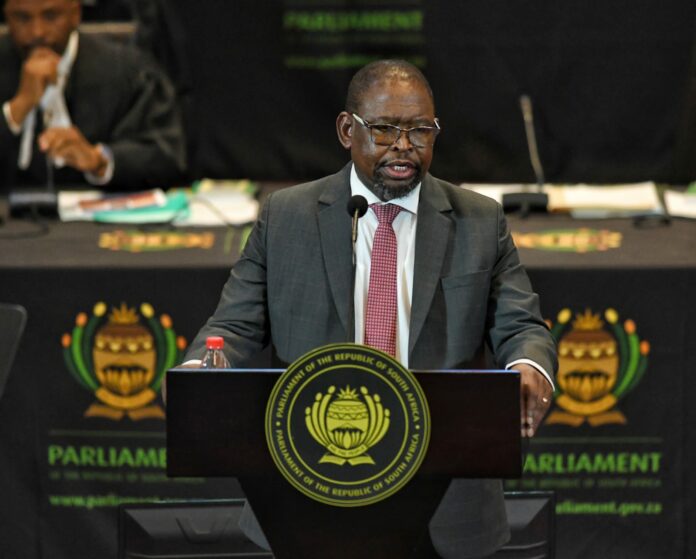Finance Minister Enoch Godongwana was bound to find himself isolated after his unilateral decision to grant financial reporting exemptions to cash-strapped Eskom.
While Godongwana could have meant well, as he has pleaded, and the decision has since been reversed, the timing and optics of the decision undermine any genuine agenda he might have sought to address.
The move was to make the struggling power utility’s books more attractive in the eyes of potential lenders on the international markets.
This was to possibly save everyone from the loadshedding pandemic, according to the Treasury. But the mishandling still remains a blunder.
A mere six days earlier Godongwana’s colleagues in President Cyril Ramaphosa’s cabinet met to iron out and report back on the country’s most pressing issues.
Sunday World has learnt that Eskom exemptions never featured on the cabinet agenda.
Some cabinet participants were on Monday, after Godongwana’s brave public announcement through a media statement, scrambling like all of us to establish the facts.
“The decision perpetuates the notion that corruption only has a black face,” said a high-ranking government official in reaction to Godongwana’s shock announcement.
Unlike former Eskom CEO Andre de Ruyter, asked the person, who is not authorised to speak to the media, why were the former black Eskom CEOs like Brian Molefe never afforded the chance for limited reporting.
The sentiment resonated with the Black Business Council (BBC).
“The BBC views this as an irrational decision that desperately seeks to shield the incompetent former CEO of Eskom, Mr Andre Marinus de Ruyter, from his lack of compliance with the PFMA [Public Finance Management Act]. This makes a mockery of our beloved country,” said BBC’s Kganki Matabane.
“The BBC stands firm on transparency, openness, and accountability. Exemptions in the legislation can’t be abused and used willy-nilly to protect non-compliance by any individual or state organ.”
Other than failing to bring his cabinet colleagues on board, Godongwana also missed reading the mood in the room.
More peculiarly, the exemptions came in the middle of a political storm in which De Ruyter accused the ANC of using Eskom as a feeding trough. He was even willing to repeat the allegations in parliament.
In response, the ANC bluffed that it would sue De Ruyter. They still have not taken legal action even after going public that he already had the governing party’s summons in the mailbox. It turned out to be a hoax.
A few days later, the ANC in parliament voted against a proposal to investigate corruption at Eskom. This prompted former president Thabo Mbeki to ask: what is there to hide if the Ramaphosa administration is innocent?
In the midst of all, Godongwana enters the fray with creative accounting steps. As genuine as he may have been, the overwhelming impression is that the ANC is bargaining with De Ruyter.
So, if De Ruyter does not snitch, the ANC government will also keep his dirty laundry away from the public eye. The conclusion is irresistible.
But Godongwana’s despotic streak stretches even deeper. On Wednesday auditor-general Tsakani Maluleke said in a media statement that the finance minister’s withdrawal of the exemptions would allow for “sufficient consultation with the National Treasury, Deloitte, as Eskom’s appointed auditors, and the Auditor-General of South Africa to address any technical issues that may have arisen”.
This flies in the face of perceptions that Maluleke was part of the decision-making process from the time Eskom’s request reached Godongwana.
After noting the separation of powers between her office and Godongwana, Maluleke said: “It is important that any exemptions granted should continue to promote transparency and accountability in the public sector.”
Reading between the lines, Maluleke may not have been persuaded by Godongwana’s initial decision.
Lastly, there is the elephant in the room, Ramaphosa.
His office has maintained anonymity. Out of the 102 000 Google search results, Ramaphosa’s take is absent.
Perhaps he approved the plan. Maybe he didn’t even know zilge. The question is probably moot now since the horse has long bolted.
It will be his legacy that feels the pinch, just as Mbeki warned this week.
Follow @SundayWorldZA on Twitter and @sundayworldza on Instagram, or like our Facebook Page, Sunday World, by clicking here for the latest breaking news in South Africa. To Subscribe to Sunday World, click here



